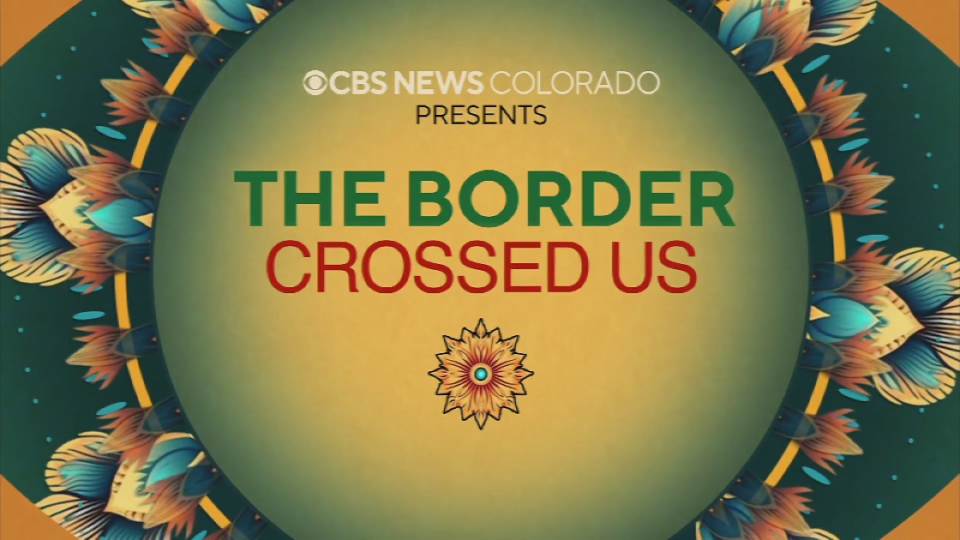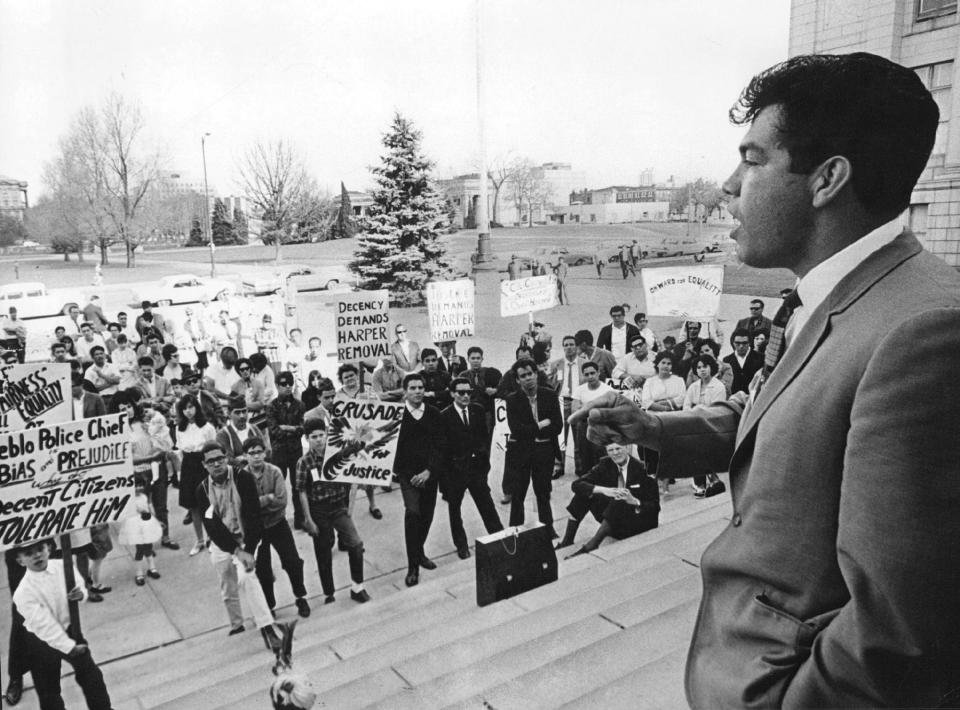Denver Chicano Movement explored in "The Border Crossed Us"
- Oops!Something went wrong.Please try again later.
Long before Colorado was Colorado, Indigenous tribes lived on the land, then Spanish settlers arrived. The Mexican War of Independence fought in the early 1800s meant they became Mexican citizens. Then came the Mexican-American War which lead to the 1848 Treaty of Guadalupe Hidalgo in which Mexico gave 55% of its territory to the United States to end the war. That meant the border moved south, crossing those families and landowners who had lived in the area for generations.

"There were families and people living in these communities and they essentially told them, you can become a United States citizen or you can go to Mexico," explained Lucha Martínez de Luna, a Chicano historian at History Colorado.
"Of course, a lot of these families had been living there for hundreds of years already, so they stayed."
But they faced hardships and displacements, especially when the U.S. Senate reneged on a promise in the Treaty of Guadalupe Hidalgo that said they would keep their land.
To add to the problem, all legal documents were in English with no interpreters provided when landowners tried to go to court.
Fast forward more than 100 years, Chicanos found themselves fighting to regain their culture and have equality at work and at school, especially in the 1960s.
Through it all, activists used the phrase "The border crossed us" as a rallying cry.
"Discrimination became more prevalent," Antonio Esquibel, a Chicano educator, pointed out. "There were signs that we had in restaurants that said 'No Mexicans Allowed,' so people were starting to say 'Well hey, why are we putting up with all of this crap?'"
"All of this" included the conditions at the Kitiyama Carnation Farm in Brighton. In 1968, mostly female workers started speaking up against long hours without overtime and working conditions that led to health problems.
New employee Guadalupe Villalobos Briseño urged workers to talk with owner Ray Kitiyama.
"Right away he said 'You all people came to see about the job but you are a bunch of pigs.' Those plain words like that," Briseño recalled. "It just clicks in your mind that you can't tolerate these things."
Talk of a union brought police to the farm. Briseño was fired but still organized a strike that would last eight months.
They got support from Rudolpho "Corky" Gonzales, a boxer whose words were more powerful than his punch. He organized a march for equity and justice called Crusade for Justice which became the name of his organization in 1965.

Gonzales' epic poem "Yo Soy Joaquin" tells the story of Joaquin who travels history beginning as an Aztec, then as a Mexican and finally as a Chicano in the United States.
Gonzales also gave his support to students at West High School in Denver when frustrations with a teacher who deliberately mispronounced names and publicly humiliated them boiled.
"He told them the reason Mexicanos are stupid is because their parents are stupid and their grandparents are stupid," Esquibel said.
The students created a list of demands that included firing the teacher, introducing bilingual education and including Chicano literature. When nothing happened, they walked out.
Police in riot gear confronted the students during the several days of walks. Nita Gonzales, Corky Gonzales' daughter, was there, speaking through a bullhorn and remembered those clashes.
"We're all bunched up there," she said. "They began to push. They began to come in from the east and push against us. Then the adults were down in on the street in front and they began to see the police beginning to pull us and beat us and beat some of the leadership and they jumped in to try to defend or protect us."
The blowouts last four days. Six people were hurt, 26 police cars destroyed and 45 people were arrested.
Days after the blowouts, the Chicano Youth Liberation conference was held in Denver, attended by 1,500 people from across the nation. "The Plan Espiritual de Aztlán" was formed, the manifesto of the Chicano Movement.
"For me, Chicano is a way to embrace my Indigenous roots to this hemisphere," explained Rudy Gonzales, a Chicano activist. "That we didn't cross the border, the border crossed us."
President Joe Biden: The 2023 60 Minutes Interview
Ret. Gen. Frank McKenzie reacts to Trump's claim that Israel pulled out of mission to kill Soleimani
If GOP won't unite, Rep. Mike Turner says a deal "will have to be done" with Democrats for speaker

